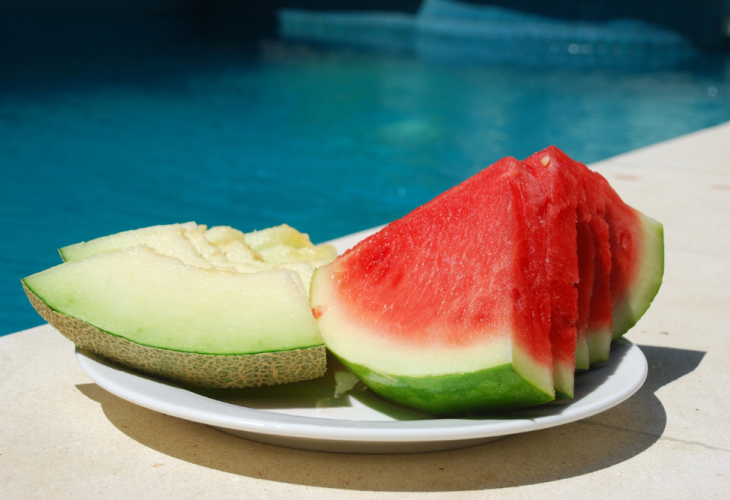Summer Fruits: Balancing Between Sweetness and Health Benefits
Summer fruits are hydrating and rich in essential nutrients, but they also contain sugars. How much should we eat, and which fruits are calorie-dense?

Summer is upon us, even with the occasional rain, and markets are brimming with sweet and delicious seasonal fruits. The intense heat makes us crave refreshing, cool foods, and fruits are a healthy and satisfying option. These summer delights are high in water content, rich in antioxidants, and packed with vitamins, minerals, and dietary fibers. However, they also contain a high amount of sugar, so moderation is key, especially for those with diabetes or fatty liver disease.
There are many myths surrounding the consumption of summer fruits, some true and others less so. On one hand, they can contribute to weight gain, but on the other hand, they are a beneficial addition to a daily diet.
Dr. Gila Rosen, head of the Clinical Nutrition Department at Rambam Medical Center, told "Doctors" website that, "In Israeli society, a commendable trend is emerging: more and more people understand the importance of a healthy and balanced diet and aspire to adopt a healthy lifestyle. However, there is a problem because the definition of 'healthy diet' has become elusive and the public is simply confused," Dr. Rosen explained.
Health Benefits
Dr. Rosen and Dana Weiner, a clinical dietitian, emphasized the undeniable health benefits of fruits, which have proven effective in preventing malignant gastrointestinal diseases and contributing to health, thanks to their dietary fibers. They also note that fruit consumption has been shown to help prevent lung cancer.
Another advantage highlighted by both is their naturally sweet taste, with fibers adding to the feeling of fullness. Dr. Rosen mentioned that although fruits contain a significant amount of sugar, they still maintain a low-calorie value, making them a preferable choice over various sweets. "Consuming them in moderation does not hinder efforts to maintain a healthy body weight, and they serve as an excellent source of natural, healthy sugar that the body uses for immediate energy needs," she said.
Furthermore, Weiner pointed out that fruits are rich in water, contributing to proper fluid balance in the body, which is crucial, especially in the summer. Additionally, fruits are a rich source of vitamins and natural antioxidants. They contain high levels of Vitamin C and unique compounds essential for the health of body cells, skin preservation, collagen fiber construction, and minerals like potassium, which help reduce problems such as high blood pressure.
How to Consume Summer Fruits
Dr. Rosen recommends consuming fruits throughout the day from every color group, as each color provides unique benefits to our bodies.
Red fruits are rich in lycopene and antioxidants, helping reduce the risk of heart disease.
Yellow and orange fruits mainly contain Vitamin A and Vitamin C, essential for the immune system.
Blue and purple fruits have high doses of antioxidants and possess anti-inflammatory properties, protecting vascular and heart health, helping prevent cancer, and slowing down the body's aging processes.
Green fruits are packed with essential vitamins, minerals, and a variety of antioxidants aiding in maintaining skin and vascular health.
Both experts suggest consuming whole fruits rather than juice, ripe and not unripe. Furthermore, eating fruit with its skin is recommended, as the skin contains vitamins, minerals, and dietary fibers.
How Many Calories Are in a Serving of Fruit?
A cup of watermelon cubes contains 46 calories.
A cup of cantaloupe contains 56 calories.
A cup of pineapple contains 83 calories.
A cup of mango contains 108 calories.
A cup of grapes contains 69 calories.
A medium peach contains 67 calories.
A medium plum contains 73 calories.
12 cherries contain 63 calories.

